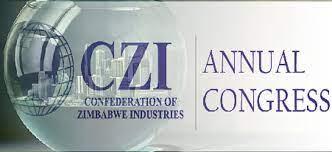News / National
Zimbabwe retail sector to grow by 5,10% in 2025
08 May 2025 at 15:08hrs |
0 Views

The Zimbabwean retail sector is projected to grow by 5.10% in 2025, with its future expansion dependent on how well it navigates the challenges of the operating environment, including the increasing dominance of informal traders.
According to a recent report by Fincent Securities, a stockbroking and equities research firm, the retail sector has the potential to flourish if businesses and policymakers can effectively address current economic constraints. However, the report emphasizes that challenges such as high financing costs, tight liquidity, unreliable power supply, and an overwhelming number of taxes and regulatory burdens are significantly impacting retail businesses.
The government is taking steps to alleviate some of these pressures. Earlier this year, the Confederation of Zimbabwe Industries (CZI) proposed a Presidential directive urging government ministries, agencies, and regulatory bodies to slash licensing fees and charges by 50 to 70 percent by June 2025. This move aims to reduce the financial burden on businesses and stimulate growth in various sectors, including retail.
In February, President Emmerson Mnangagwa echoed these sentiments, instructing that government ministries and departments ensure that businesses are not hindered by prohibitive regulations and punitive administrative fees. Instead, the President highlighted that these fees should support economic development, rather than restrict it.
Further reinforcing this commitment, Finance, Economic Development and Investment Promotion Minister Mthuli Ncube announced in March that the government would conduct a comprehensive review of the country's tax and regulatory framework. The goal, he stated, is to identify and eliminate unnecessary taxes and regulatory fees that obstruct business operations and economic growth.
Despite these challenges, the outlook for the retail sector remains positive. Fincent Securities noted that the retail and wholesale trade sector has become a key economic driver, contributing approximately 18.8% to Zimbabwe's gross domestic product (GDP). However, the report also highlighted the growing influence of informal trade, which is increasingly affecting the performance of formal retail businesses.
According to Fincent's findings, the outlook for consumer spending in 2025 remains subdued, largely due to stagnant growth in disposable incomes. As a result, essential categories such as food, housing, and transport are taking precedence over discretionary spending, reflecting the strained financial situation of many households.
The retail sector is facing a delicate balancing act—one where it must contend with the rapid expansion of informal trade while also adapting to regulatory and economic reforms that aim to alleviate the cost pressures on businesses. However, with the right adaptations and sustained policy support, the retail sector could continue to grow and play a central role in the broader economy.
As the government works to resolve the structural issues in the regulatory and tax systems, the future of Zimbabwe's retail sector will largely depend on how effectively businesses can adjust to the evolving economic landscape.
According to a recent report by Fincent Securities, a stockbroking and equities research firm, the retail sector has the potential to flourish if businesses and policymakers can effectively address current economic constraints. However, the report emphasizes that challenges such as high financing costs, tight liquidity, unreliable power supply, and an overwhelming number of taxes and regulatory burdens are significantly impacting retail businesses.
The government is taking steps to alleviate some of these pressures. Earlier this year, the Confederation of Zimbabwe Industries (CZI) proposed a Presidential directive urging government ministries, agencies, and regulatory bodies to slash licensing fees and charges by 50 to 70 percent by June 2025. This move aims to reduce the financial burden on businesses and stimulate growth in various sectors, including retail.
In February, President Emmerson Mnangagwa echoed these sentiments, instructing that government ministries and departments ensure that businesses are not hindered by prohibitive regulations and punitive administrative fees. Instead, the President highlighted that these fees should support economic development, rather than restrict it.
Further reinforcing this commitment, Finance, Economic Development and Investment Promotion Minister Mthuli Ncube announced in March that the government would conduct a comprehensive review of the country's tax and regulatory framework. The goal, he stated, is to identify and eliminate unnecessary taxes and regulatory fees that obstruct business operations and economic growth.
Despite these challenges, the outlook for the retail sector remains positive. Fincent Securities noted that the retail and wholesale trade sector has become a key economic driver, contributing approximately 18.8% to Zimbabwe's gross domestic product (GDP). However, the report also highlighted the growing influence of informal trade, which is increasingly affecting the performance of formal retail businesses.
According to Fincent's findings, the outlook for consumer spending in 2025 remains subdued, largely due to stagnant growth in disposable incomes. As a result, essential categories such as food, housing, and transport are taking precedence over discretionary spending, reflecting the strained financial situation of many households.
The retail sector is facing a delicate balancing act—one where it must contend with the rapid expansion of informal trade while also adapting to regulatory and economic reforms that aim to alleviate the cost pressures on businesses. However, with the right adaptations and sustained policy support, the retail sector could continue to grow and play a central role in the broader economy.
As the government works to resolve the structural issues in the regulatory and tax systems, the future of Zimbabwe's retail sector will largely depend on how effectively businesses can adjust to the evolving economic landscape.
Source - the herald
Join the discussion
Loading comments…



























